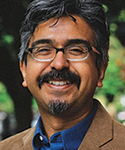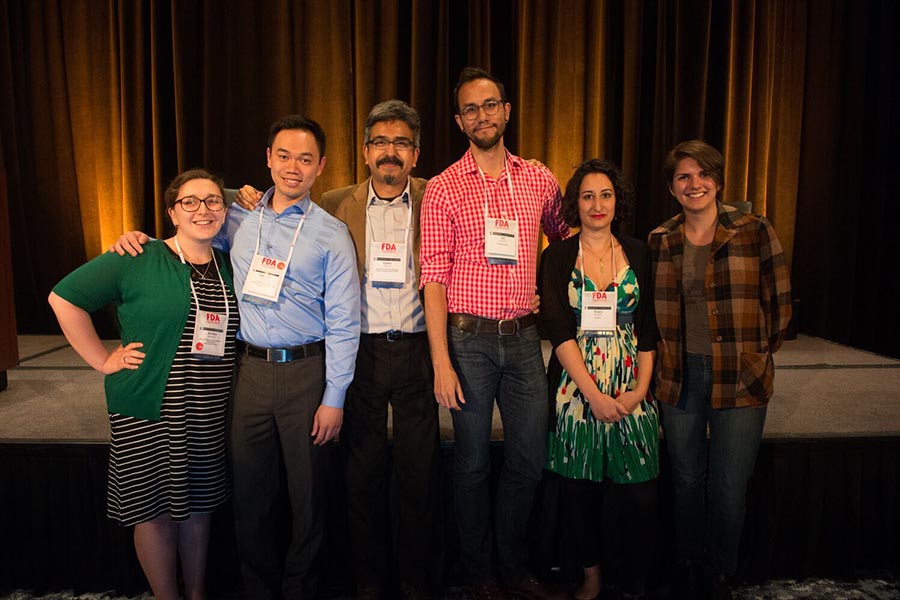The next TCG national conference is a little more than a month away. Which means there will be a new cohort of the Rising Leaders of Color program, just as there was at last year’s TCG conference in Portland, Ore. (the deadline to apply for this year’s cohort is May 4).
We in the Oregon cohort were, for the most part, strangers a year ago. And even though some of us have since moved away, we’re still bound together by that intense week we shared in Portland last year, and the program we embarked on nearly a year ago. I wanted to tell you a little about our cohort: who we are, and what the program has meant to us.

For me, getting accepted into the RLC changed my life. I wasn’t sure I belonged in the program when I was accepted. I didn’t trust in my own abilities as an arts writer, and I felt disconnected from the theatre world. Almost a year later and things feel so different. I’m reviewing for The Oregonian and Oregon ArtsWatch (and contributing to this magazine). I don’t second-guess myself as a critic as much as I did. I’ve made wonderful connections with artists and other critics across the country. And being connected with artists of color in Portland makes me feel more connected in the city I live in. It’s also been a lot of hard work, and I know that there’s more work ahead of me. But it’s work I’m excited about.
Tracy Cameron Francis

Francis, a director/educator/producer/dramaturg, is the only member of the RLC cohort raised in Portland. That makes her something of a unicorn in a city of transplants, though she now splits her time between Portland and New York. The difference between theatre in these two cities can be stark at times.
“Portland’s smaller for sure,” Francis tells me. “There’s less risk and rigor than I’m used to. On the flip side there’s a lot of potential here; it’s easier to get visibility in a way.”
After spending most of the last decade in New York, reestablishing herself in Portland hasn’t been easy. “In New York I primarily focus on Middle Eastern work, but without a larger pool of Middle Eastern actors, that work can be difficult to cast in Portland,” she says, adding that being part of the Rising Leaders of Color program has helped her feel like she’s starting to find a sense of community.
Besides working with theatre companies around town, Francis does theatre outreach to youth in detention and runs the Cascade Festival of African Films. Currently, she’s developing a performance lab in Portland. “While there are a plethora of small theatre companies here, there are very few development opportunities here for new work. I hope it will also be a way to meet more artists and bring my East Coast and international collaborators out to play more often.”
Geno Franco

A couple hours south of Portland is Eugene, Ore., where Franco serves as production and facilities manager for Oregon Contemporary Theatre. “Eugene had a big hand in the counterculture movement,” says Franco, “and that vibe is still here.” It’s also a city surrounded by rural communities, giving the area unique mixture of people.
Franco had been working in scenic painting for several years, and around the time he was working at Oregon Shakespeare Festival, he started to see a bigger picture and got interested in production management. “It was the gig,” says Franco of his work at OSF. “But seeing how a season comes together and understanding the logistics of running a company interested me. I started looking for someone to take me on as an apprentice.”
At 37 he wasn’t sure anyone would, but then he was brought on at Steppenwolf Theatre Company in Chicago. A few years later, Franco headed back to the West Coast, landing at OCT in 2015.
OCT is the oldest professional theatre in Eugene, but it’s still quite small. “We have to wear a lot of hats here,” Franco says. But that has given him a lot of new experiences: He can now claim management, facilities, directing, and community engagement as parts of his skill set.
The lack of diversity in Portland is even more pronounced in Eugene, he points out. “There are not as many professional actors of color here,” Franco says. “We actually hire a lot out of Portland. It’s expensive. I’d like to see us get involved in training more local actors, figure out how to bring it to them. The RLC program gave me more strength in discussing where we could be better in Equity, Diversion, and Inclusion (EDI) work—what it means on our stage and in our community.”
Samson Syharath

Syharath moved to Portland in 2011 from a mostly white small town in Arkansas, where growing up he felt alienated from the community he lived in. “I didn’t feel included until I did theatre,” he says. “I work so that future generations of people of color won’t have to work so hard to find that inclusion.”
Syharath, an actor who works as an administrative associate at Portland Actors Conservatory, is a cofounder of Theatre Diaspora, Oregon’s only professional Asian American/Pacific Islander (AAPI) theatre company. “We thought that we, as Asian-American artists, should bring more visibility to Asian-American playwrights,” says Syharath. Diaspora is admittedly small, mainly producing staged readings. “We do what we have time and money for.”
After the 2017 TCG Conference Syharath received a fellowship from the Portland Civic Theatre Guild that sent him to Laos to learn traditional theatre. It was his first time in the country, and Syharath says he was shocked to see the effects of the secret war in Laos. He plans to work on a show about his experiences.
“The RLC program helped me define myself as a leader,” he says. “It’s easy to feel alone as an artist of color, and it’s good to be reminded that I can collaborate with other artists of color to create opportunities for ourselves.”
Jordan Schwartz

Schwartz’s acceptance into the RLC program came just before she finished grad school at the University of Oregon, and right after she accepted a position as director of literary programs and outreach at the Phoenix Theatre in Indianapolis.
“It was really overwhelming, all of this happening right out of school,” says Schwartz. But it was also the right time. “It was amazing to have it happen right as I started my first full-time job. I suddenly had all these people to use a sounding board, helping me to find resources I needed. It really taught me to be comfortable reaching out to other people for help.”
Schwartz started her masters knowing that she loved dramaturgy but unsure how to make it a career. An advisor at UO connected her with an alumni who was also a literary manager, who showed her a career path she’d never considered before. Eventually she landed an internship at the Phoenix, which led to the job she has now.
“Literary management is helping structure what’s going to show up onstage,” Schwartz explains. “You have to be aware of what else is out there. I spend a lot of time reading scripts, looking at playwriting programs, and seeing what is being produced all around the country. It’s like being up on a watchtower.”
Jordan also gets to do a lot of community outreach as part of her work at the Phoenix. “I love working with kids and being hands-on in the community.”
Madilynn Garcia

Garcia, a freelance manager and producer, was considering leaving Portland when she was chosen for the RLC. “It was awesome to connect with other early/mid-career people of color in my community,” she says. “That was a big thing I was missing in Portland. Also, the space to dive into defining your values as a creator was really awesome, and meaningful, for me.”
But she decided that she needed a change and moved to Minneapolis shortly after the TCG conference. “This was the real first winter I’ve ever experienced,” she says with a laugh. “But the cold doesn’t stop people here. It’s amazing.”
Garcia has come to love the theatre scene in Minneapolis. “You can see a big show at the Guthrie or a show in development at a small theatre collective. And with the Playwrights Center here, there’s a lot of new work happening in the city.” She thinks it’s a city that artists can make a go of it, based on the cost of living and the amount of work available.
She also finds Minneapolis more diverse than Portland. “A lot of the mid- to large-size theatres are doing a good job putting up work by artists of color and including them in production work. I can see the conversations happening here, exploring why it’s necessary.”


